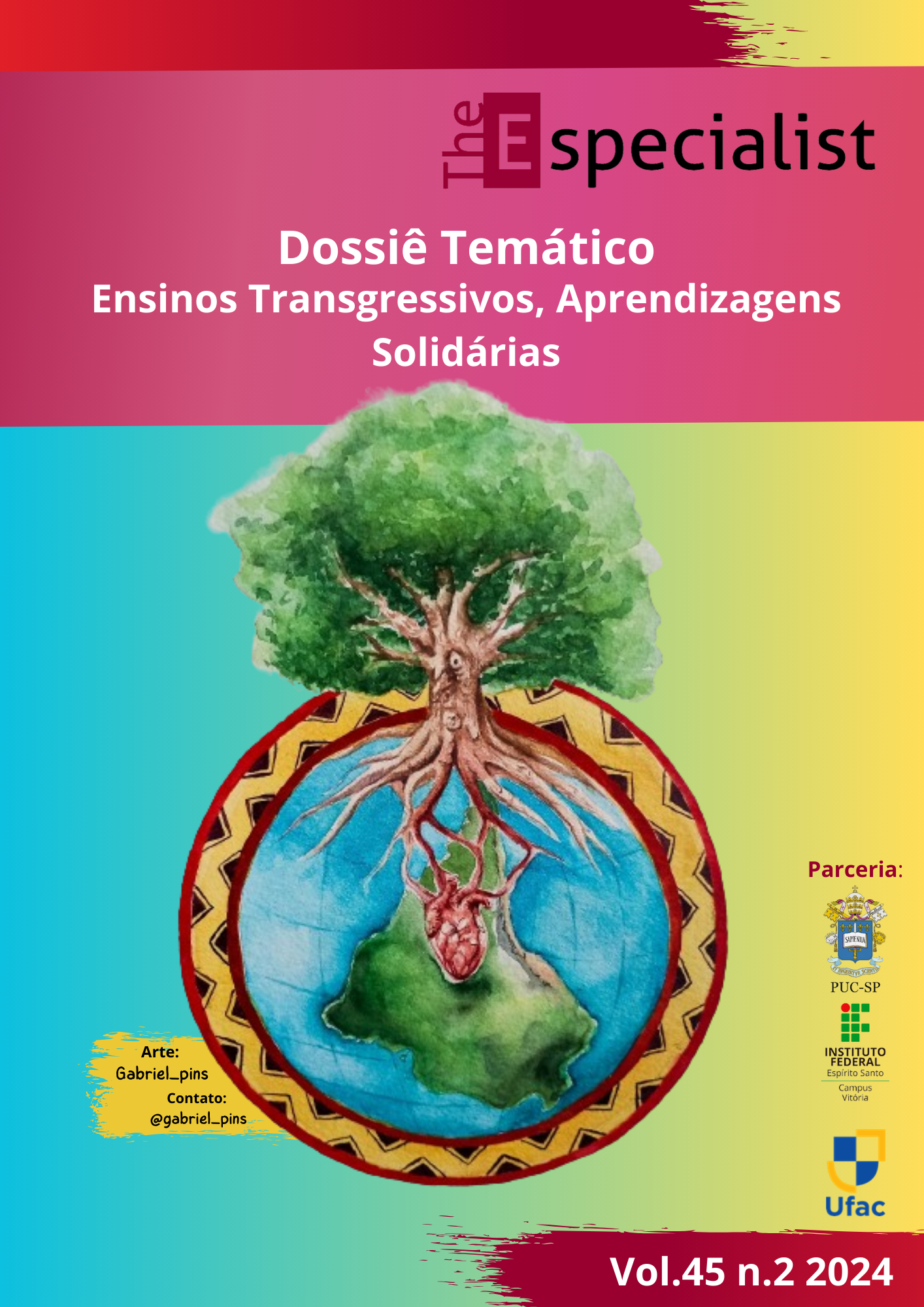Student's digital literacy:
gamification as a strategy for teaching and learning in classes in the first years of Ifac's integrated high school
DOI:
https://doi.org/10.23925/2318-7115.2024v45i2e64493Keywords:
Gamification, Multiliteracies, Teaching, Digital TechnologyAbstract
The present research aims to investigate how the use of digital technologies, through the lens of gamification, can favor the teaching/learning of the Portuguese language in the first-year high school classes of the Computer Networks course at the Institute of Education, Science and Technology of Acre – Ifac, from the perspective of the teachers. The goal is to understand the importance of using these active methodologies in the classroom, as well as the contribution of these actions to the digital literacy of students. In this sense, considering the globalized era we are in, this research is relevant when we propose to work with digital technology that brings about significant changes for the social, intellectual, and professional development of individuals in all sectors of society. To support this research, the following theoretical framework was used: Alves (2015), Kleiman (2007), Leffa (2014), Rojo (2012), Soares (2002), among others. The methodology adopted is bibliographical, has a qualitative-quantitative nature, and it was also carried out through field research with Ifac teachers. Questionnaires with open and closed-ended questions were used as instruments to generate data. The results indicate that the use of gamification, although still modest, can contribute to the digital literacy of students.
References
ALVES, Flora. Gamification - como criar experiências de aprendizagem engajadoras: um guia completo do conceito à prática. 2. ed. São Paulo: DVS, 2015.
BACICH, Lilian; MORAN, José. Metodologias ativas para uma educação inovadora: uma abordagem teórico-prática. Penso Editora, 2018.
FADEL, Luciane Maria; ULBRICHT, Vania Ribas; BATISTA, Cláudia; VANZIN, Tarcísio. Gamificação na Educação. Pimenta Cultural : São Paulo. 2014
FREIRE, Paulo. & HORTON, Myles. O caminho se faz caminhando: conversas sobre educação e mudança social. 4 ed. Petrópolis-RJ: Vozes, 2003.
KENSKI, Vani. M. Educação e tecnologias: o novo ritmo da informação. 8. ed. Campinas, SP: Papirus, 2013.
KAPP, Karl. (2012) The Gamification of learning and instruction: Game-based methods and strategies for training and education. Pfeiffer. Hoboken, NJ.
KLEIMAN, Angela. B. Letramento e suas implicações para o ensino de Língua Materna. Signo. Santa Cruz, v. 32 n. 53, p. 1-25, dez. 2007.
LEFFA, Vilson. Produção de Materiais para o Ensino de Línguas na Perspectiva do Design Crítico. In: TAKAKI, Nara Hiroko; MONTE MOR, Walkyria. (Org.). Construções de sentido e letramento digital crítico na área de línguas/linguagens. Campinas: Pontes Editores, 2017, p. 243-265.
PAIVA, Vera Lúcia Menezes de Oliveira e. Manual de pesquisa em estudos linguísticos. 1. ed. São Paulo: Parábola, 201.
MORAN, José. Contribuição das tecnologias para uma educação inovadora. In ESPÍRITO SANTO, J. A; ANDRÉ, B. P. O Uso das Tecnologias da Informação e Comunicação - TIC’s no Ensino de Língua Portuguesa. II CONINTER – Congresso Internacional Interdisciplinar em Sociais e Humanidades Belo Horizonte, de 8 a 11 de outubro de 2013.
ROJO, Roxane. Pedagogia dos multiletramentos: diversidade cultural e de linguagens na escola. In: ROJO, Roxane; MOURA, Eduardo. Multiletramentos na escola. São Paulo: Parábola Editorial, 2012.
SOARES, Magda. Novas práticas de leitura e escrita: letramento na cibercultura. Educação e Sociedade: Campinas, vol.23, n.81, p.143-160, dez. 2002.
TAKAHASHI, Tadao. (org.). Sociedade da Informação no Brasil: Livro Verde. Brasília: MCT, 2000
Downloads
Published
How to Cite
Issue
Section
License
Copyright (c) 2024 The ESPecialist

This work is licensed under a Creative Commons Attribution 4.0 International License.
The authors grant the journal all copyrights relating to the published works. The concepts issued in signed articles are the absolute and exclusive responsibility of their authors.


 Esta obra está licenciada com uma Licença
Esta obra está licenciada com uma Licença 